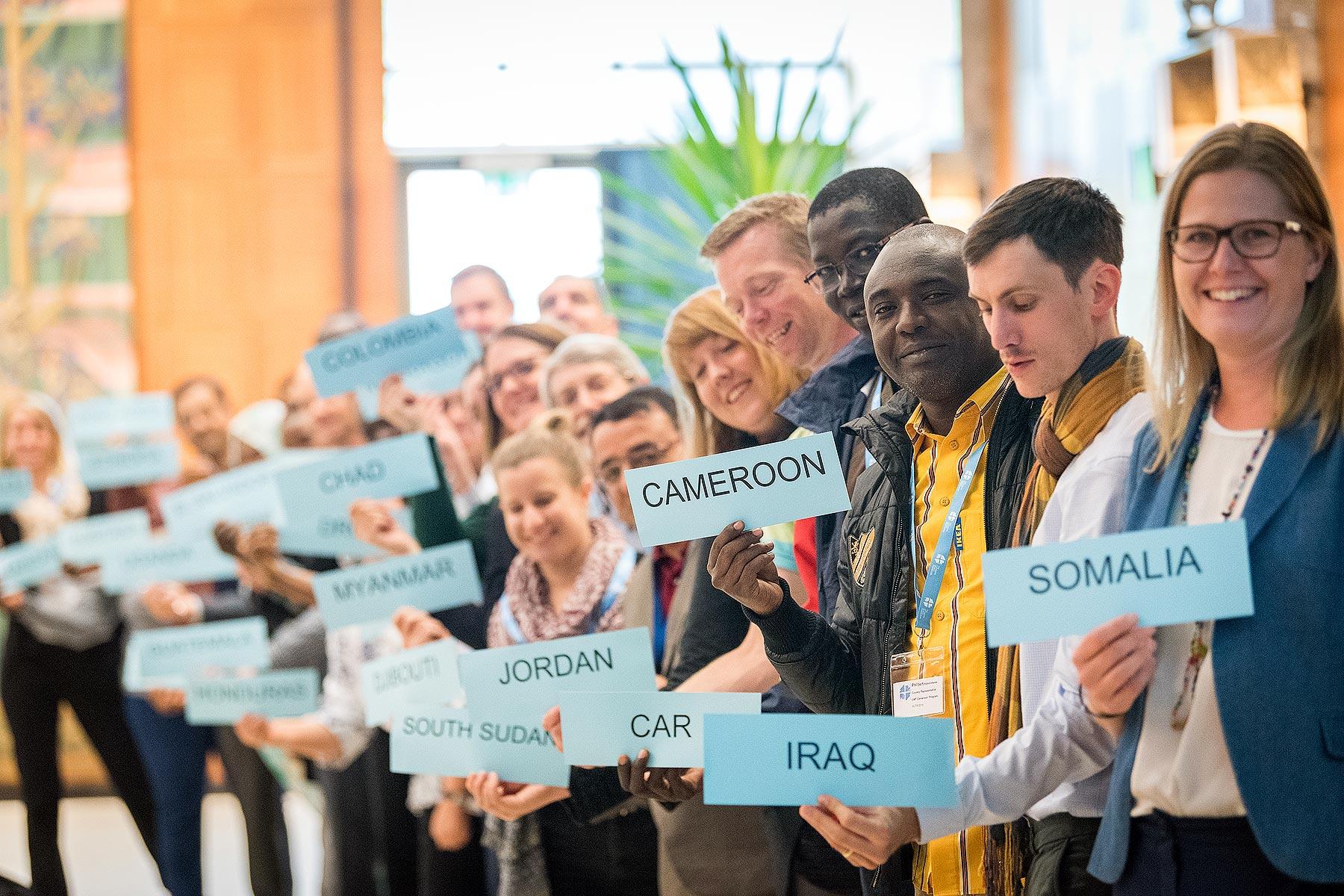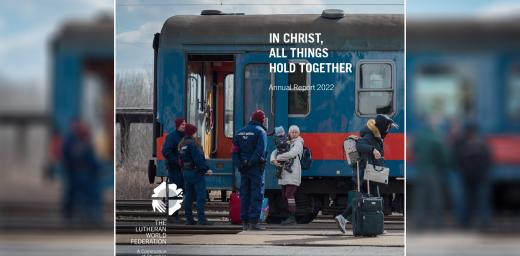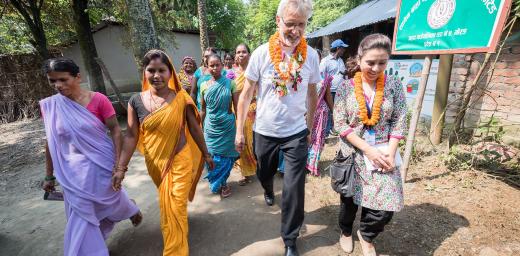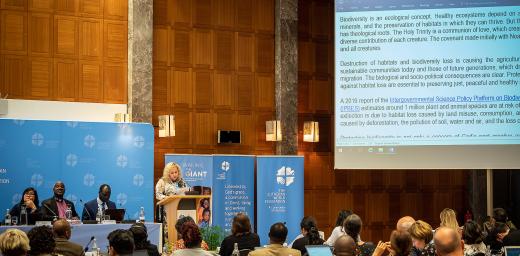Rooted in faith, committed to serving others

World Service staff attending the GLTM hold the names of the countries where they are working. Photo:LWF/A. Hillert
World Service country program staff in Geneva for Global Leadership Team Meeting
(LWI) - How can the Lutheran World Federation (LWF) respond better to emergencies and to the long term development needs of the world’s most vulnerable people? How can it help to ensure safety, shelter, wellbeing and access to human rights for all people, irrespective of ethnicity, gender, religion, race or political convictions?
Those questions were at the heart of a week-long Global Leadership Team Meeting (GLTM) for staff of the LWF’s World Service department which serves some 3 million people in countries across the globe through its relief and development work.
The meeting, which opened on 9 May in Geneva, brought together heads of country programs in Asia, Africa, the Middle East, Latin America and the Caribbean, alongside staff from the LWF Communion Office. At the top of their agenda was a focus on how to strengthen relations in order to become more effective at local, national and international level.
Responding to needs of migrants and refugees
At the opening session, LWF General Secretary, Rev. Dr Martin Junge recalled that the organization was founded in 1947 as church leaders gathered to respond to the needs of migrants, refugees and forcibly displaced people in the wake of the Second World War. 70 years on, he stressed, the LWF must never be “an end in itself, but must always be oriented towards service” of others.
During a panel presentation, participants discussed the challenge of nurturing relationships between World Service country programs and local LWF member churches. In some countries, such as Nepal, Angola or the Central America region, World Service staff cooperate closely with local Lutheran churches, while in other countries there are opportunities for better collaboration. An important goal of the meeting was to provide participants with the opportunity to learn from each other's extensive experience in humanitarian and development work.
Strengthening local leadership
World Service works in close partnership with the UN, as well as with other related organizations, and one of the speakers at the meeting was Daniel Endres, head of the UNHCR’s division for external relations. Reflecting on the longstanding cooperation, he described the LWF as “a trusted and faithful partner.” He noted that “LWF prefers to work quietly, focusing on the core tasks, and willing to go to the most difficult places where not many others wish to be.”
LWF prefers to work quietly, focusing on the core tasks, and willing to go to the most difficult places where not many others wish to be.
Endres highlighted the need to strengthen local capacity and leadership to deal with the challenges facing refugee populations and host communities. Refugee camps, he said, should be an initial response to crises, but the focus must be on welcoming refugees into the community with access to education and work opportunities. He looked ahead to the UNHCR Global Refugee Forum in December which will be an opportunity for building momentum around refugee work and will include a high level plenary on faith issues.
Another guest speaker at the meeting was Ignacio Packer, executive director of the International Council of Voluntary Agencies (ICVA), who noted that World Service has been, for many decades, a valued member of the network which was set up to make humanitarian action more principled and more effective.
Expanding effective partnerships
Packer said 17 percent of ICVA members are faith-based organizations. He highlighted the need to build new partnerships in order to become more influential advocates, bringing the voices of the grass roots to the places of political and economic decision-making. He stressed that NGOs should invest more in expanding their influence, adding that “Church leaders need to support and help protect the space of our collective level of influence as a sector.”
World Service director Maria Immonen paid tribute to the professionalism of the country program staff as they met “to discuss our successes, joys, challenges, problems and failures together.” She said that the 9-17 May meeting marks the most important annual encounter, reflecting all the different aspects of what it takes to run a country program: strategy, human resources, finances, funding, procurement, security, new policies, and changes in the global environment which affect our work.” She added: “It is always a joy to exchange views, debate issues and laugh together, as we seek to become even better at what we do.”





